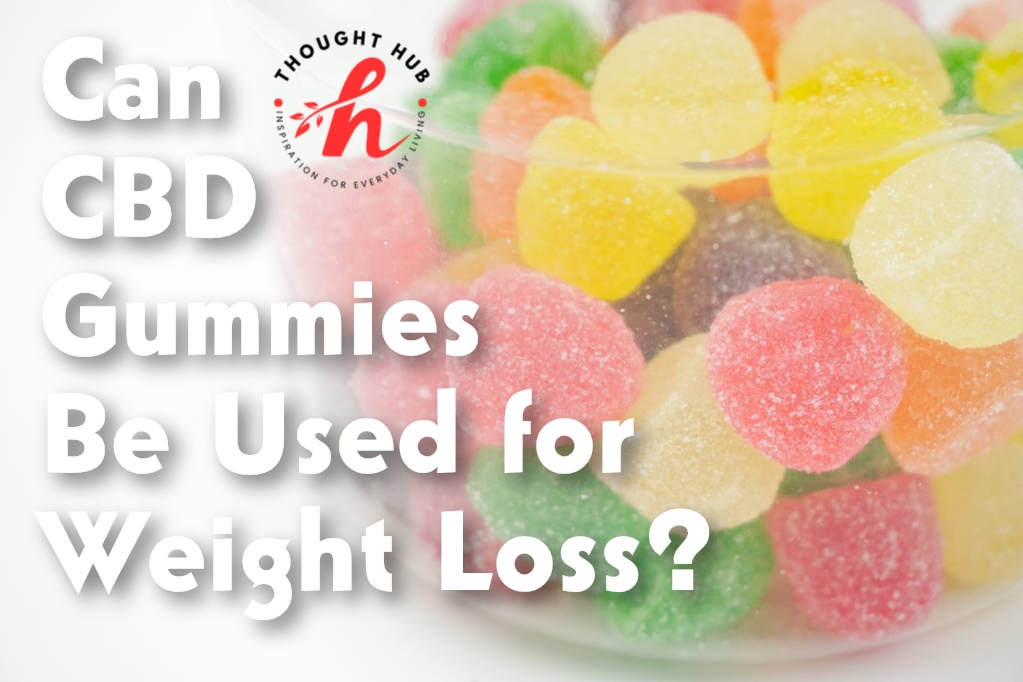Cannabidiol (CBD) has gained considerable popularity for its potential health benefits, ranging from pain relief to managing anxiety. Among the various forms of CBD products, gummies have emerged as a popular option due to their convenience and ease of use. One of CBD’s more intriguing discussions is its potential role in weight loss. But can cbd gummies really be used for weight loss? In this article, we’ll dive into the science behind CBD, how it interacts with the body, and whether or not it can help with weight management.
Understanding CBD and Its Effects

CBD is a non-psychoactive compound found in the cannabis plant, meaning it doesn’t cause a “high” like THC (tetrahydrocannabinol). CBD interacts with the body’s endocannabinoid system (ECS), a complex network of receptors that plays a role in maintaining balance, or homeostasis, in the body. The ECS is involved in a variety of processes, such as mood regulation, sleep cycles, appetite, and immune system responses.
- The body has two primary endocannabinoid receptors,
- CB1 and CB2. CB1 receptors are mainly found in the brain and central nervous system,
- While CB2 receptors are located in peripheral organs and tissues.
- Including the immune system.
- When CBD interacts with these receptors.
- It can influence a range of physiological responses, which is why it’s being studied for a variety of potential therapeutic benefits.
Can CBD Affect Weight Loss?

While the research on CBD’s role in weight loss is still in its infancy, there are several mechanisms by which CBD may potentially influence weight management:
- Regulation of Appetite
- One of the most direct ways CBD may impact weight loss is through its effect on appetite. Unlike THC, which is known to increase appetite (commonly referred to as “the munchies”), CBD may help to regulate or reduce appetite. Some studies suggest that CBD may influence the hypothalamus, the part of the brain responsible for hunger signals. By reducing excessive hunger signals, CBD could help prevent overeating and contribute to weight loss.
- Fat Browning
- Another area of research is the effect CBD may have on fat cells. In the body, there are two types of fat: white fat and brown fat. White fat is responsible for storing energy and can lead to weight gain when in excess. Brown fat, on the other hand, burns energy to produce heat. Some studies have shown that CBD may promote the conversion of white fat into brown fat, a process known as “fat browning.” This conversion can enhance the body’s ability to burn calories and potentially assist in weight loss efforts.
- Metabolism Boost
- CBD may also affect metabolism. Animal studies have indicated that CBD could help increase metabolism and reduce food intake, which could lead to weight loss over time. By boosting metabolism, the body can burn calories more efficiently, supporting weight management.
- Reduction of Stress-Induced Eating
- Stress is a significant factor in weight gain for many people. When individuals are stressed, their bodies release cortisol, a hormone that can lead to increased appetite and the accumulation of abdominal fat. CBD is known for its calming properties and its ability to reduce stress and anxiety. By lowering stress levels, CBD may help prevent emotional eating, which is a common contributor to weight gain.
- Improved Sleep and Weight Management
- Sleep is an often-overlooked component of weight management. Poor sleep patterns can lead to weight gain by disrupting hormones that control hunger and fullness, such as ghrelin and leptin. CBD has been shown to improve sleep quality in some individuals, and better sleep may contribute to healthier eating patterns and weight loss.
What the Research Says
While there are promising areas of study, it’s essential to note that most of the research on CBD and weight loss is still in its early stages, with many studies conducted on animals rather than humans. Here are a few key studies that offer insight into CBD’s potential role in weight management:
- Appetite Control: A 2018 review published in the International Journal of Molecular Sciences found that CBD may help to reduce appetite. However, the mechanisms behind this effect are still not fully understood. Some human studies have noted that CBD reduced food intake, while others showed no significant effect on appetite.
- Fat Browning: A 2016 study published in Molecular and Cellular Biochemistry found that CBD influences the body’s ability to convert white fat into brown fat. The researchers noted that this “browning” of fat cells could be beneficial in managing obesity and weight gain.
- Metabolism: A 2011 study conducted on rats found that CBD helped to reduce food intake and body weight by interacting with CB1 and CB2 receptors in the brain. However, further human trials are necessary to confirm these findings.
CBD Gummies for Weight Loss: What You Should Know

CBD gummies offer a convenient and tasty way to incorporate CBD into your daily routine. However, it’s important to manage your expectations when using CBD gummies for weight loss. While CBD may support certain aspects of weight management, such as reducing stress and improving sleep, it’s unlikely to result in significant weight loss on its own.
For those considering CBD gummies as part of their weight loss journey, it’s crucial to understand that CBD is not a magic solution. Like any supplement, it should be used in conjunction with a healthy diet and regular exercise for the best results. Here are a few tips for incorporating CBD gummies into your weight loss plan:
- Start with a Low Dose: If you’re new to CBD, start with a low dosage and gradually increase as needed. Most CBD gummies come in pre-measured doses, making it easier to control your intake.
- Choose High-Quality Gummies: Not all CBD products are created equal. Look for gummies that are made from organically grown hemp, are third-party tested for purity, and contain no artificial additives or preservatives.
- Monitor Your Body’s Response: Since everyone’s body reacts differently to CBD, keep track of how you feel after taking the gummies. If you notice positive changes in your appetite, stress levels, or sleep, that’s a good indication that CBD is having a beneficial effect.
- Stay Consistent: Consistency is key when using CBD for any purpose. Incorporate CBD gummies into your daily routine, but be patient, as it may take some time to see noticeable effects.
- Pair CBD with a Healthy Lifestyle: For the best results, combine CBD gummies with a balanced diet, regular physical activity, and stress management techniques. CBD can support your efforts, but a holistic approach is necessary for long-term weight loss success.
Conclusion
While the potential for CBD gummies to aid in weight loss is promising, the research is still evolving, and results may vary from person to person. CBD may assist with weight management by regulating appetite, enhancing fat metabolism, reducing stress, and improving sleep, all factors that can contribute to a healthier lifestyle. However, it’s essential to approach CBD as a supportive tool rather than a primary solution for weight loss.
As with any supplement, consult with a healthcare provider before incorporating CBD into your routine, especially if you are taking other medications or have underlying health conditions. With proper use and realistic expectations, CBD gummies may offer benefits that complement your overall weight loss strategy.


